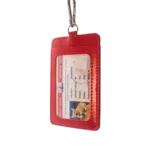We hear about emotional support dogs and cats quite often. However, rabbits are no less popular among those who need psychological endorsement. These charming creatures can be wonderful companions for their owners.
Rabbit as an ESA


Helper animals are special animals that aid people to overcome the symptoms of different physical or psychological disorders. It could be service animals or emotional support animals. Service animals are specially trained to fulfill various assignments from their handlers to make their life physically easier. They are taught to do work and meet the disability-related demands of their handlers.
Emotional support animals do not require any special training. Their main function is to be partners and companions to rely on in crisis situations. ESA is a psychological prop for its owner. With an emotional support animal, people become more sociable and easy-going because they feel safe with their companions.
Somehow or other, the main function of helper animals is to provide assistance to their owners. An animal builds a strong connection with a person on a mental level. This connection, in turn, helps a person to more easily tolerate the symptoms of various diseases and get rid of them faster.
Therefore, given no restrictions on the type of animals and their special skills rabbits are great emotional support animal which really have a positive effect on a person and his mental health.
The Purpose of Emotional Support Animals
Unlike service animals, for emotional support animals registration pets don’t need any specific training. They are not supposed to perform any particular tasks. Emotional support animals are primarily companions and friends. They help a person not to feel lonely. Their owners feel important and needed since the animal also requires care and attention.
All ESAs are very loving and friendly, but at the same time, they will not let their handler be offended. If they feel they threat by their owner, Besides, people often talk to their rabbit support pets. It helps them open up, talk and articulate their problems, accept them and work on their recovery. Walking with an emotional support animal is a great way to get out of a stressful situation.
In addition, during a walk, a person can clear his mind and look at the situation from a new angle. Animals are also known to help humans meet and make friends. These creatures often provoke the beginning of a dialogue between their handler and other people and often become the topic of the first conversation.
Mental Health Problems That Can Be Cured By ESA
An emotional support animal mental helps those who suffer from depression, anxiety, PTSD, and obsessive-compulsive disorder. The animal helps to change the usual way of life, and also makes adjustments to the daily routine of its owner. Such changes are the most important step toward getting rid of mental maladies.
Moreover, an emotional support animal helps to gradually dispose of panic attacks. At first, these attacks become less frequent and easier to tolerate. And over time, a person ceases to suffer from panic attacks altogether. Equally important, ESA protects its owner during a panic attack in a public place and can even help you get home or to find shelter safely.
Emotional support animals also succor people with social and antisocial frustrations. A person no longer feels lonely, ESA adds to its owner a sense of security and self-confidence. Because of this, the owners of the ESA become more sociable and companionable, it is easier for them to initiate a conversation and make friends.
It is also essential that an emotional support animal aids the owner to overcome fears and phobias. It can even wake its owner during nightmares, feeling the acceleration of the heart rate and rapid breathing.
ESAs’ Disciplining

Since the ESA rabbit does not have to perform any specific functions other than being a companion to its owner, it does not need additional training. However, handlers of emotional support animals often use positive reinforcement training methods to teach the animal to follow certain commands. All emotional support animals are very intelligent and easy to tame, so you can train them yourself at home.
Nevertheless, in order to be in society, an emotional support animal must be trained in good behavior. These creatures should not be aggressive and hot-tempered, they should not bark, growl or bite people and other animals. In addition, the animal must be accustomed to meeting its physical needs in specially designated places, as well as to have a clear feeding and walking regime.
Legally, ESA has the right to accompany its owner to public places and live with him at no additional cost, but in fact, these rights may be limited on an individual basis due to inappropriate animal behavior. This basic education lets ESAs owners avoid will help to avoid conflict situations with others, and will also allow them to enjoy all the benefits that the official status of an emotional support animal provides.
Emotional Support Rabbits Benefits
An ESA rabbit quite often becomes a pet for people suffering from mental frustrations today. They are quite playful and loving animals. At the same time, they do not burden the owner with their presence in any way and do not bring any inconvenience.
These soft and fluffy creatures are practically not prone to any manifestations of aggression. They build a strong bond with the handler, bring pleasant emotions, peace, and happiness to their owners. In addition, rabbits have a variety of traits of character that distinguish them from any other emotional support animal.
An emotional support rabbit can also be disciplined with positive reinforcement training. For example, you can teach your pet to use a litter box or other light commands that the pet will be able to do.
It is also noteworthy that rabbits live longer than most other pets. If the average life span of a dog or cat is 8-9 years, then rabbits will be with their owner for more than 10 years. But only with proper care of the animal.
Traits Of the Character Of a Bunny
Despite their small size, these adorable creatures have big hearts. An emotional support rabbit is an extremely loving and gentle animal. These personality traits make rabbits ideal four-legged companions and friends for their owners. Over time, rabbits begin to recognize their owner by voice and can even come to his or her call.
Emotional support rabbits are very social animals. They love to play with people, to be in their arms, and are always placed as close to a person as possible. In addition, they build a strong bond with their owner, which also contributes to the speedy recovery of the person.
Rabbits are very quiet, unlike other animals. They do not make loud noises, so you do not need to worry about the animal disturbing or annoying you with unnecessary noise. This trait is especially important for people who suffer from fears and phobias, such as a fear of loud, unexpected sounds.
The main feature of the emotional support rabbit is that this animal can cheer up and give strength when a person is experiencing burnout or depression. Also, petting your bunny helps relieve stress and tension. And even one of their cute and charming looks can instantly calm and pacify the owner.
You Can Register an Emotional Support Rabbit with the MyServiceAnimal registrar.
ESA Bunnies’ Care
First and perhaps one of the most important things about rabbits is that they do not need much space. If you live in an apartment or house where there is not enough room for a large animal, an emotional support rabbit is a great solution for you.
At the same time, experts do not recommend locking the animal in a cage, as this can have negative consequences for both the bunny and its owner. In this case, it will not be possible to build that strong bond between the pet and the handler. The influence of the rabbit as an emotional support animal will be less noticeable. It is best to use separate feeders and provide a litter box for the animal.
Furthermore, rabbits do not need to be walked like dogs. Moreover, the emotional support rabbit feels safer inside next to its owner. In this case, it is important to ensure that the animal is active, and play with it at least a few hours a day so that the rabbit can stretch its muscles.
Feeding is pretty simple. You can purchase special rabbit food at pet stores. Also, for the execution of commands, you can pamper your pet with a carrot or an apple during training.
The Law and support rabbits


Like any ESA, emotional support rabbits can live with their owner at no additional cost, provided that the animal does not spoil the property of the landlord. A landlord cannot prohibit living with an emotional support animal or evict his tenants without objective reasons if the owner provides a housing reasonable accommodation request. If you need an ESA doctor’s letter for your bunny please ask your personal therapist or psychologist.
In all other matters, we recommend that you study the rules of specific institutions on an individual basis. Since ESAs are not considered to be assistance animals, their rights may be limited in some areas of life. You can also choose pet-friendly establishments or airlines.
























